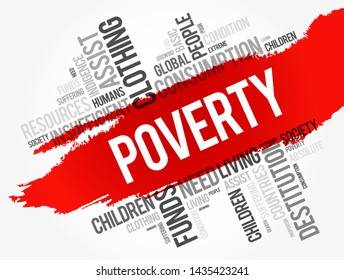Ending Poverty in Africa: A Key to Stopping Electoral Misconducts and Weaponization of Poverty
1. Poverty is a major challenge in Africa, with a poverty rate of over 40% in sub-Saharan Africa.
Poverty has far-reaching effects, including political instability, poor health, illiteracy, and poor economic growth.
2. One of the most concerning consequences of poverty is electoral misconducts, which often involve the weaponization of poverty to rig elections.
Electoral misconducts are a threat to the democratic process and political stability in Africa.
3. Research has shown that electoral misconducts and the weaponization of poverty are more common in countries with high poverty rates.
Countries with high poverty rates often experience more incidences of electoral misconducts than countries with low poverty rates.
4. Ending poverty in Africa will undoubtedly lead to the reduction of electoral misconducts and the weaponization of poverty.
When people are no longer living in extreme poverty, they are less likely to be swayed by political elites who offer them money or other essential items in exchange for their votes.
5. Moreover, ending poverty in Africa will promote political stability.
Poverty is often associated with political instability, as it creates a sense of despair, hopelessness, and disenfranchisement among citizens.
6. In conclusion, addressing poverty is crucial if Africa is to put an end to electoral misconducts and the weaponization of poverty.
It is essential that governments, international organizations, and other stakeholders work together to address poverty through the implementation of policies that promote economic growth, job creation, and access to basic services.
The picture on African inequality is complex. Seven of the 10 most unequal countries in the world are in Africa, most of them in southern Africa. Excluding these countries and controlling for GDP levels, inequality is not higher in Africa than elsewhere in the world. The household survey data do not reveal a systematic increase in inequality across countries in Africa. But the number of extremely wealthy Africans is increasing. Differences between urban and rural areas and across regions are large. Intergenerational mobility in education and occupation has improved, but remains low.




No comments yet
Be the first to share your thoughts!